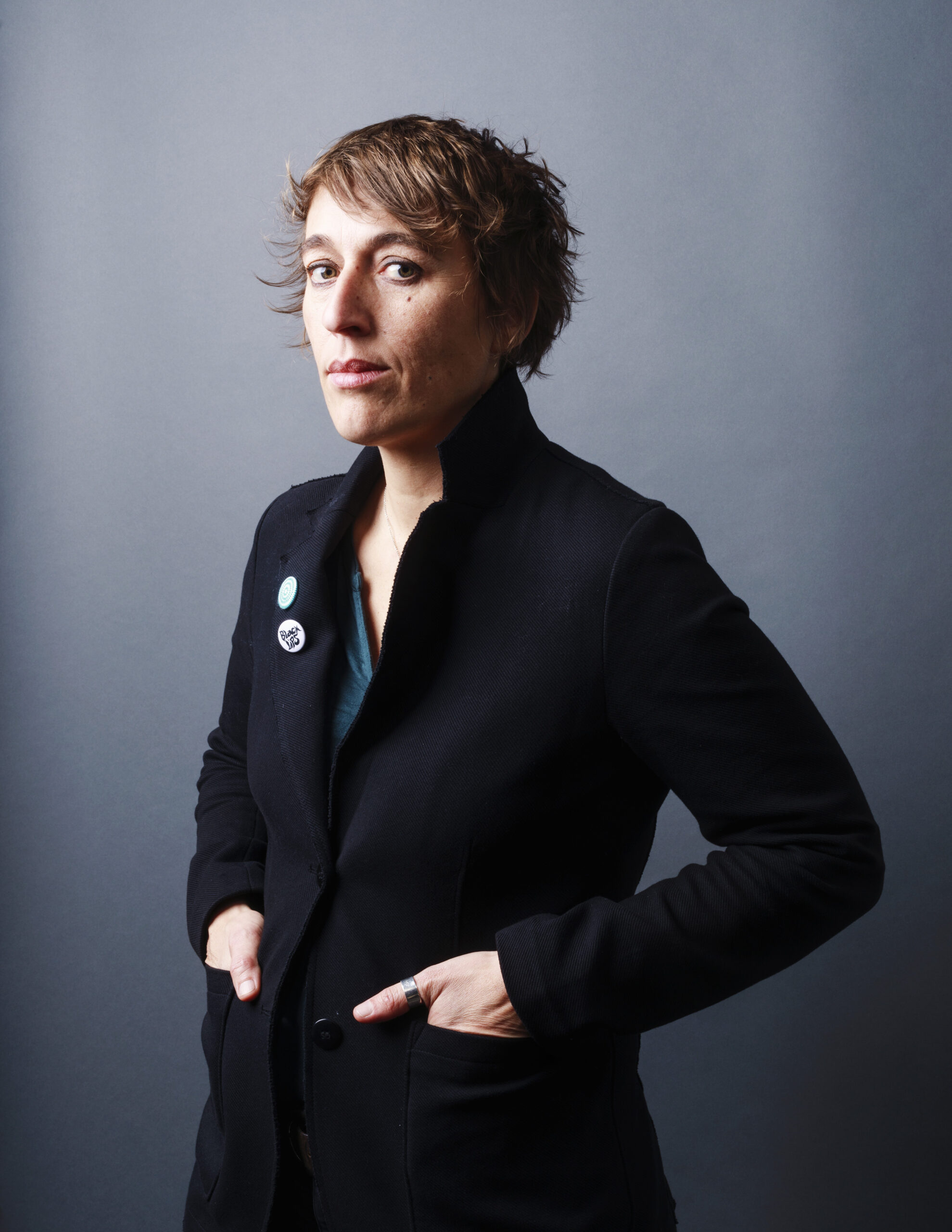In Nos armes, her latest novel, she follows the journey of a gang of militant youngsters, in particular two of them, Axelle and Mano. Exhilarated by their struggle, they decide to go one step further: hold up a municipal bank. The action went badly wrong. One gets 25 years in prison, the other gets off scot-free. A dark, edgy, touching tale of commitment, guilt, love…
The rage that drives this group of activists is striking. In particular, the origin of this violence, according to them: the society in which they live, that of the 90s… Why did you choose to set your story in that era?
I wanted to write pure fiction, with no specific major events to correlate the story with. My choice fell on a period that was relatively unmarked by strong demonstrations of struggle, before the strikes of 1995 and their resurgence of militancy. Beyond that, the 90s represent my generation, which meant that I had everything that mattered at the time in my head and in my heart.
As you say: Nos armes is fiction. And yet, through the lives of its various protagonists, you take care to recall the founding events of the struggle: May ‘68, 17 October 1961, Salvador Allende’s rise to power in Chile, the fall of the Berlin Wall…
These events left their mark on me. They set the pace for my ideological thinking. And with good reason… I felt it was important to remember that every militant movement is part of a long history. Of course, at the moment, rage and anger are being expressed here and there, but this is not insignificant: they are the fruit of years of struggle, in France and elsewhere. All far-left militant groups have this relationship with that history. It makes them dream. Axelle, Mano and their followers are inspired by these great actions around the world and by their past leaders.
Another, more hidden, less overt form of violence also comes to the fore in this book: the guilt that haunts Mano. Why was this theme important to you?
Some of us struggled. Not all of us. Some of those who got involved when they were younger, who felt concerned by the collective, who expressed their desire for change, have withdrawn into their own lives and their own pleasures. The feeling of giving up the fight can create a kind of guilt. But there are other ways to fight. Writing books, as I do, is one of them. However, I never tell myself beforehand that I have to explore this or that theme. My obsessions guide me, naturally. Here, as always, the theme of guilt imposed itself on me.
Make no mistake about it: while this novel is very dark on the whole, there are some bright spots. Starting with the love between Axelle and Mano. Was it hard for two women to fall in love in the 90s?
No. But the fact is, they don’t even have time to think about it. Their story had barely begun when prison separated them. But love holds Axelle and Mano together. That’s very important to me. In an increasingly capitalistic world, shaken by war dramas, this feeling continues to carry us. It counters the prevailing cynicism…
The story of the ten years Mano spends in India is in turn a parenthesis. But this departure raises questions. Why did you choose India?
Precisely because this country has nothing to do with their struggle. Mano never expected to fall under its spell. Her arrival in this part of the world was pure chance. She finds herself there to follow her partner in a sporting challenge that doesn’t interest her in the slightest… And yet, she is taken by surprise. This country surprises her in the same way that it surprised me. The culture is so different from ours, and the beauty is astounding. In India, Mano enters a bubble, another universe, where she can finally find peace.
Another bright spot in this dark novel is Axelle’s grandfather. A leading light for her in a difficult family…
Although he is the one who teaches Axelle how to use a gun, he is the only person in her family with whom she has a strong bond.
Unfortunately, this grandfather – that’s life – dies, Mano ends his Indian interlude and prison separates her from Axelle right from the start of their love story: this book is full of disillusionment. How do you see the struggle today?
In my books, I try not to give answers, but rather to share my questions, my doubts… I think that’s why I write. I still have a lot of faith in young people today. They’re finding their own weapons to fight against the world we’ve left them, particularly on the issue of climate change or – and this delights me deeply – feminism. On this point, the wave that has been breaking for some time is proving to be much more powerful and global than the actions taken in the 90s or 70s. Something really powerful is happening among young girls today. There’s no turning back. It’s completely heartening. A clear proof that the struggle makes sense.

